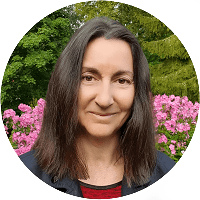Has anyone listened to you lately? I mean – really listened, so you have felt truly heard and understood. Hemingway once wrote, ‘When people talk, listen completely. Most people never listen.‘ Is it true that people don’t listen to each other? And what does ‘listen completely’ mean?
We live in a fast-paced, digitally-driven world, where the luxury of being listened to seems to be vanishing. Research suggests that Hemingway’s observation holds true even today. A study published in the Journal of Experimental Social Psychology found that in conversations, people spend about 60% of their time talking about themselves [1]. This self-focus often comes at the expense of listening to others.
Active Listening
But what does it mean to “listen completely”? It could mean active listening, a concept developed by renowned psychologist Carl Rogers, one of the founders of humanistic psychology. Active listening involves empathetic listening and full attention on what is being said rather than just passively hearing the message of the speaker [2]. An active listener strives to understand the complete message, including the emotional nuances and underlying meanings.
Dr. Rogers believed that by listening to someone actively, without judgment, we could help them feel understood and accepted, which in turn could lead to personal growth and positive change. And he was right, the benefits of active listening are profound and well-documented. Patients, for example, feel more understood, better supported and even heal better when doctors practice active, non-judgmental listening [3]. The same is true for workers, who flourish when supervisors listen to them [4].
Interestingly, active listening also improves the way listeners are perceived. A study in the Journal of Research in Personality found that individuals perceived as good listeners were rated as more likable and empathetic [5]. In the workplace, research published in the Harvard Business Review showed that leaders who received the highest marks for listening were also considered most effective [6].
Becoming a Better Listener
It makes sense that if we long for a world where people listen more to each other, if we want to become better people, professionals and leaders, one thing we can do is become better listeners ourselves. Here are some evidence-based strategies that help:
- Practice mindfulness: Being present in the moment can help you focus on the speaker and avoid distractions.
- Use non-verbal cues: Maintain eye contact, nod, and use facial expressions to show you’re engaged. These small gestures can make a big difference in how heard the speaker feels.
- Ask clarifying questions: This shows you’re actively trying to understand and can help prevent misunderstandings.
- Avoid interrupting: Let the speaker finish their thoughts before responding. An exception is the cooperative interruption that can be natural or even required in some cultures (see my article The Art of the Interruption: Conversation Across Cultures).
- Reflect and paraphrase: Summarize what you’ve heard to ensure you’ve understood correctly. This also gives the speaker a chance to clarify if needed.
Listening Beyond Strategies
But there’s an even deeper perspective on listening, one that goes beyond techniques and strategies, offered by non-dual traditions such as Advaita Vedanta and certain schools of Buddhism.
From a non-dual viewpoint, true listening involves dissolving the sense of a separate self that’s doing the listening. Listening this deeply requires us to access a space of open awareness within ourselves, where thoughts, judgments, and the need to respond fall away. In this state, there’s no “listener” and “speaker” – just the pure experience of communication unfolding.
Zen master Thich Nhat Hanh describes this as “deep listening.” He says, “Deep listening is the kind of listening that can help relieve the suffering of another person. You can call it compassionate listening. You listen with only one purpose: to help him or her to empty his heart.” [7]
This level of listening requires a profound shift in our usual way of being. It involves letting go of our ego, our need to be right, and our desire to control the conversation. Instead, we open ourselves completely to the other person, creating a space of acceptance and understanding.
Practicing this deep, non-dual listening can have transformative effects not just on our relationships, but on our entire way of being in the world. It cultivates empathy, compassion, and a sense of interconnectedness that evolves into the inseparability of oneness.
We Have the Power
In conclusion, while Hemingway’s observation about people rarely listening completely may often be true, we have the power to change this. By cultivating active listening skills and exploring deeper, more mindful forms of listening, we can enrich our relationships, improve our communication, and perhaps even transform our understanding of ourselves and others.
Sources:
[1] Tamir, D. I., & Mitchell, J. P. (2012). Disclosing information about the self is intrinsically rewarding. Proceedings of the National Academy of Sciences, 109(21), 8038-8043.
[2] Rogers, C. R., & Farson, R. E. (1957). Active listening. Industrial Relations Center of the University of Chicago.
[3] Jagosh, J., Donald Boudreau, J., Steinert, Y., MacDonald, M. E., & Ingram, L. (2011). The importance of physician listening from the patients’ perspective: Enhancing diagnosis, healing, and the doctor–patient relationship. Patient Education and Counseling, 85(3), 369-374.
[4] Mineyama, S., Tsutsumi, A., Takao, S., Nishiuchi, K., & Kawakami, N. (2007). Supervisors’ attitudes and skills for active listening with regard to working conditions and psychological stress reactions among subordinate workers. Journal of Occupational Health, 49(2), 81-87.
[5] Ames, D., Maissen, L. B., & Brockner, J. (2012). The role of listening in interpersonal influence. Journal of Research in Personality, 46(3), 345-349. [6] Zenger, J., & Folkman, J. (2016). What great listeners actually do. Harvard Business Review, 14.
[6] Zenger, J., & Folkman, J. (2016). What great listeners actually do. Harvard Business Review, 14.
[7] Hanh, T. N. (2003). Creating True Peace: Ending Violence in Yourself, Your Family, Your Community, and the World. Free Press.
 Aurora Carlson is an Ayurvedic counselor, meditation teacher, social worker, linguist, and the Chopra Foundation regional advisor for Sweden. Visit her on: auroracarlson.com.
Aurora Carlson is an Ayurvedic counselor, meditation teacher, social worker, linguist, and the Chopra Foundation regional advisor for Sweden. Visit her on: auroracarlson.com.






